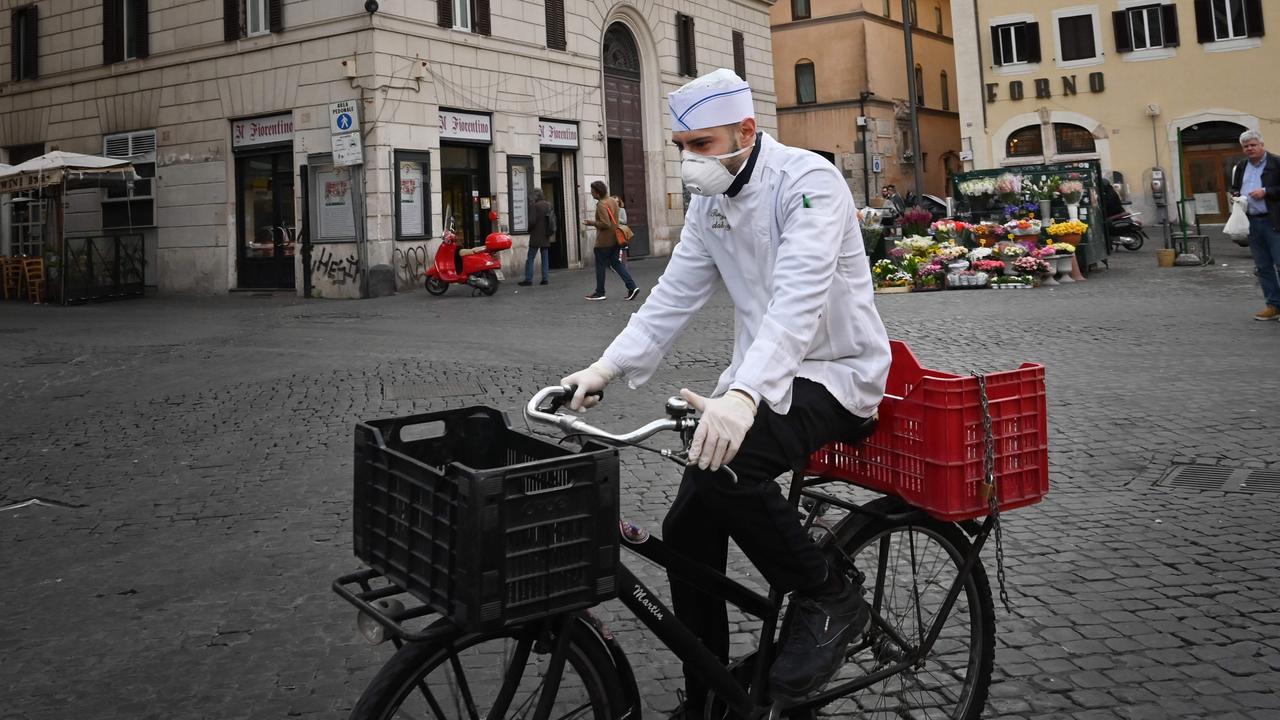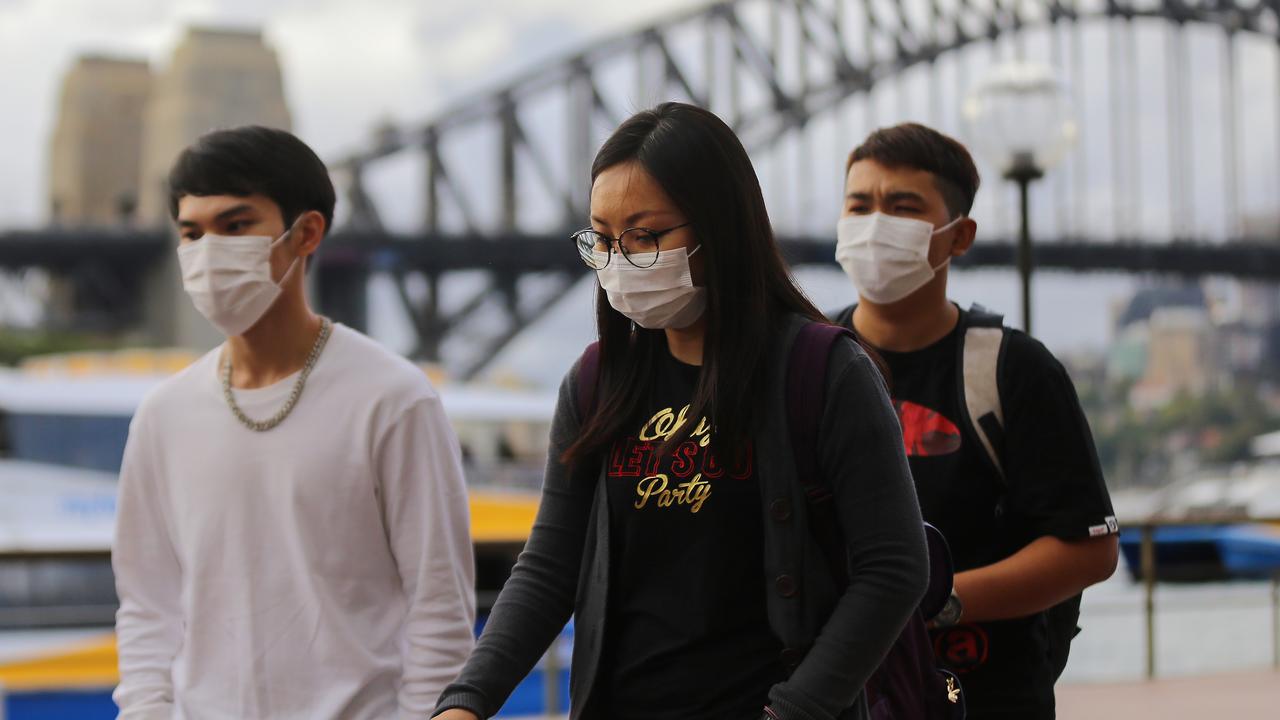Men and people with heart diseases at great risk from coronavirus, study reveals
A study has revealed some people are much more likely to die from coronavirus as well as those who suffer from one particular health condition.

The elderly, males and also people with heart diseases are at greater risk from coronavirus, a study has found.
On Monday, The Centres for Disease Control and Prevention (CDC) released new coronavirus guidelines stating who is at higher risk and provided instructions on how to best protect yourself from COVID-19, the flu-like disease caused by the coronavirus.
According to the CDC, “older adults” were among the common suffers and people who had “serious chronic medical conditions” such as those with heart disease, diabetes and lung disease.
A study from the World Health Organisation (WHO) found people who had no chronic health conditions had a death rate of 1.4 per cent but those with heart disease had a death rate of 13.2 per cent.
Virus patients who had diabetes had a death rate of 9.2 per cent, high blood pressure 8.4 per cent, chronic respiratory disease 8 per cent and cancer 7.6 per cent.
Statistics were based on deaths among the more than 55,000 cases of COVID-19 in China.
RELATED: Brisbane patient with virus urges the world to ‘calm down’
RELATED: Live coverage: Australian coronavirus cases jump

According to the data, those aged over 80 have the highest death rate (21.9 per cent).
Men compared to women also carried a higher risk of death at 4.7 per cent and 2.8 per cent respectively.
The Heart Foundation’s chief medical adviser Professor Garry Jennings said it was not yet clear why people with heart disease were more at risk of dying from coronavirus.
“We see it with the flu as well so it is similar, what we don’t know is why,” he said.
“They’ve got less reserves because they are struggling with heart disease and then something else comes along and overwhelms them.
“It’s a respiratory illness and they already have fluid build-up in their lungs from heart disease.”
WHO research also highlighted that as of February 20 and based on 55,924 laboratory confirmed cases “most people infected with COVID-19 virus have mild disease and recover”.
“Approximately 80 per cent of laboratory-confirmed patients have had mild to moderate disease, which includes non-pneumonia and pneumonia cases; 13.8 per cent have severe disease (dyspnea, respiratory frequency) … and 6.1 per cent are critical (respiratory failure, septic shock, and/or multiple organ dysfunction/failure).”

It explained that people with the virus generally develop signs and symptoms including mild respiratory symptoms and fever, a dry cough, fatigue and shortness of breath – on an average of five to six days after infection.
“Disease in children appears to be relatively rare and mild with approximately 2.4 per cent of the total reported cases reported among individuals aged under 19 years. A very small proportion of those aged under 19 years have developed severe (2.5 per cent) or critical disease (0.2 per cent).”
AVERAGE TIME TO DEATH
New research looking at deaths among 191 Chinese coronavirus patients published in The Lancet journal found the average time to death from the virus was 18 days.
Patients who died were more likely to develop sepsis, have blood clots, lower white blood cell count, elevated levels of a biomarker for inflammation and chronic disease, indicators they had suffered a heart attack, The Herald Sun reported.
PREVENTIVE MEASURES
Apart from frequent handwashing and avoiding touching one’s face, the new CDC recommendations included other suggestions, such as avoiding touching surfaces such as lift buttons in places where many people gather. “To the extent possible, avoid touching high-touch surfaces in public places — elevator buttons, door handles, handrails, handshaking with people, etc. Use a tissue or your sleeve to cover your hand or finger if you must touch something.”
‘DANGEROUS KEY FACTOR’
According to the Heart Foundation almost six million Australian adults have hypertension, otherwise known as high blood pressure, which has also been recognised as a great risk.
Du Bin, a director of Peking Union Medical College Hospital’s intensive care unit, has been treating seriously ill coronavirus patients in Wuhan and believes hypertension may increase your changes of dying from the virus.
In a group of 170 patients who died from COVID-19 in January, nearly half had hypertension – a “very high ratio,” Dr Bin told Bloomberg.
“From what I was told by other doctors and the data I can see myself, among all the underlying diseases, hypertension is a key dangerous factor,” Dr Bin said.

“Though there is no research published on that yet, we believe hypertension could be an important factor in causing patients to deteriorate, leading to a bad prognosis.”
The risk of having hypertension increases with age and those in regional or rural areas have a 27 per cent higher rate of the condition.
High blood pressure increases a person’s risk of having heart disease, a stroke or kidney disease.
Other factors that increase the risk of a fatal coronavirus case include old age and a weakened immune system.
Globally there’s been more than 113,000 cases and 4000 deaths, with the biggest outbreaks in China, Italy, South Korea and Iran.
Outside of mainland China, Italy now has the highest number of deaths in the world at more than 400 with fatalities mainly in people aged over 60 – Italy has the oldest population in Europe, with about 23 per cent of residents 65 or older, according to The New York Times.
The entire country is now in lockdown.
Prime Minister Scott Morrison and other leaders have called for calm including a Brisbane woman who was diagnosed with the virus last week.
Bridget Wilkins, 29, likened her symptoms to “jet lag” explaining they were no worse than a “sore throat and a headache”.
She was diagnosed last week after flying back from London via Singapore, for a wedding.
“There’s a lot of hype and hysteria on the news around coronavirus,” she said.
“There should be. It’s very serious, particularly for the elderly and people with existing conditions.”
However she said “we have to calm down” saying for most people, like herself, it’s just a long cold that “we can shake off”.



